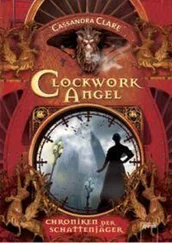Old Foss had come after him, hiding in the rigging, or under the bundles to trade, watching and waiting.
And one day when the water of night came in too high and no one was left to bail it out and it was too late by far, Old Foss whispered in the Old Man’s ear as he dreamed: “Time to come home, for the water’s rising. Time to wake up, now or never. Time to dream a little less and live a little more, old friend,” and a partial payment on a debt never to be repaid was made.
“Thank you,” the Old Man said, when awake and in his bed again, “for surely I would have drowned.”
And yet, something was taken from the Old Man too, something taken that can never be returned—what the Jumbly Girl meant to him—and for that there was a new debt, never to be repaid.
“Why did you bother me,” the Old Man would say at other times, when the confusion came to him, “why didn’t you leave me to drown in peace, in bliss of other things, with my Jumbly Girl?”
For they had tried to keep him:
“Stay,” they had told him, despite the rising water, the leaking of the sieve. “Stay and dream with us.”
“Come with me,” he had said to his Jumbly Girl, “come with me and be my love; we will think of things to do to pass the time, though it will not be this—we will paint unfinished pictures by the shore and hold hands inside the rain. I will write you poems and you will tell bad jokes. It’s not this but isn’t it something?”
And she agreed to come with him, to meet him in the morning, by the shore of everything, below the sun, beside the night, where the sky birds came to draw them home by silver cords in their fiery beaks, on a raft made of fronds from the Twangum Tree; he and Old Foss waited for her to come from the sieve as it sank in the river of night, but she did not appear.
Somehow, it seemed, in stepping from the sieve to the shore to the raft, he had misplaced her; when he had turned back to hold out his hand and help her out, she was gone.
She never reappeared. And the Jumblies disappeared from the sieve with the morning light, like fog retreating into the sea, but with an ache like when you remember what you thought the world was going to be like when you were young and foolish.
“Come on, Old Man,” Old Foss had said, “the sieve is sinking fast.”
“Will I ever see her again?”
There is no answer to such questions and he offered none, but the Old Man asked it again, asked it so many times over the years that Old Foss finally said, “I’m sorry, Old Man.”
“Oh, I know, it’s all right, Old Foss.”
But it wasn’t.
* * *
Old Foss leapt from roof to roof like a young cat with nothing to lose, not a fat old cat with everything at stake. The rain had depressed him, then frustrated him, then made him ironic and bitterly elated. He sang: “How many lives, how many lives, how many more lives for the cat? At least one more, at least one more, and another one after that!” as he leapt across an alleyway and scrabbled onto the roof on the other side. When he reached the edge of town he climbed quickly, nosily, awkwardly down a drainpipe full with leaking water rushing. Leaping off the pipe, he landed badly, quickly looking around, licking his shoulder uselessly in the rain, and walking with what dignity he could muster toward the shore, his orange and black fur matted to his bulging body where it wasn’t sticking out ridiculously.
Then he saw the Old Man curled into a ball on the hill, halfway down to the beach, a white blur among the grey of water falling; Old Foss ran to him.
Old Foss whispered in his ear, “Come, Old Man. Time to come in, the water is falling fast and your nightshirt is thin.”
“She came to me in my dreams,” the Old Man shouted suddenly, his eyes opening wide and wild, “she came to me in my dreams. They’ve come again in the sieve to take me to sea.”
“This would be the last time,” Old Foss said. “Wait a little while longer and we will find ways to pass the time—painting unfinished pictures by the shore, or you can pet me by the fire when it rains, or….”
He didn’t know what to say. Could he do this to the Old Man again, take him from his Jumbly Girl?
For the Jumblies were by the shore, and the Jumbly Girl was with them. As the rain lessened they came into sight. She was leaving them and wandering up the hill, a ghost in green, her voice on the wind:
“Come with us, come to stay, and we will sail under the sea, and we will never leave but we will never want to….”
Old Foss turned away from looking at her.
I suppose you should go, Old Foss thought, I suppose you could go and I should stay for I only wanted you for myself, an old debt I will never be able to repay. He didn’t say it because it hurt too much to say it.
But the Old Man did not turn his head to look at his Jumbly Girl.
She came closer, calling again, “Come, come, come to sea, to the sieve that sinks below the waves until we drown, to the lost worlds below the sun.”
But the Old Man did not turn his head.
The Jumbly Girl stopped. “Can’t you hear me, love?”
Old Foss dared not turn to look at her again. The Old Man did not hear. He could not see. Old Foss would not give away her presence.
The Jumbly Girl stood, her body heaving, crying, Old Foss supposed, but the rain made that indeterminate. That at least was what he tried to tell himself.
The Old Man cried, too, and that he could see despite the rain, for the Old Man beat his breast and tore at his thinning hair, and pulled hard on his frumpy old beard until he pulled the hair out in uneven patches.
“I want to die,” the Old Man said, as the Jumbly Girl reached out for him with arms of green embrace, with love forever and ever for him, to death, yes certainly to death but perhaps beyond as well.
“I’m sorry I made a mistake, so long ago,” Old Foss said, “that time by the river of night, I should have let you drown. Or maybe you have with me.”
But the Old Man didn’t hear, or couldn’t listen.
Old Foss mewed piteously, wet through.
“Oh, Old Foss,” the Old Man said, “look at you, oh, you’re wet through.”
Old Foss shivered and looked to him like he had looked to him once long ago as a kitten lost in the rain.
“Come on, Old Foss, let’s go home,” the Old Man said, rising, pulling Old Foss against him, heading back up the hill. “They’re not coming after all.” He choked on the words. “They’re not here.”
The Old Man leaned over Old Foss, and Old Foss peered over the Old Man’s shoulder to see the Jumblies come in a heap to the Jumbly Girl crying on the hill. They covered her in their love, with their arms at all angles and their boots kicking out, and their eyes green compassion. They smiled a blue benediction.
“I’m sorry,” they said to the Jumbly Girl, and turning they all walked, or rolled, or shambled downhill. “I’m sorry,” they said together and held her in their arms until they vanished in rain.
“Home again soon,” the Old Man said, soothing, but tired like a drunk man sobered by sorrow on his way home again from a lost night on the town, or like a storm-tossed sailor thrown on the shore, wobbling inland to safety.
“It’s all right, it’s all right, it’s all right, Old Foss.”
“I’m sorry,” Old Foss said.
“There, there,” the Old Man said, though he couldn’t hear. “It’s all right. It’s all right.”
But it wasn’t.
 Читать дальше
Читать дальше














